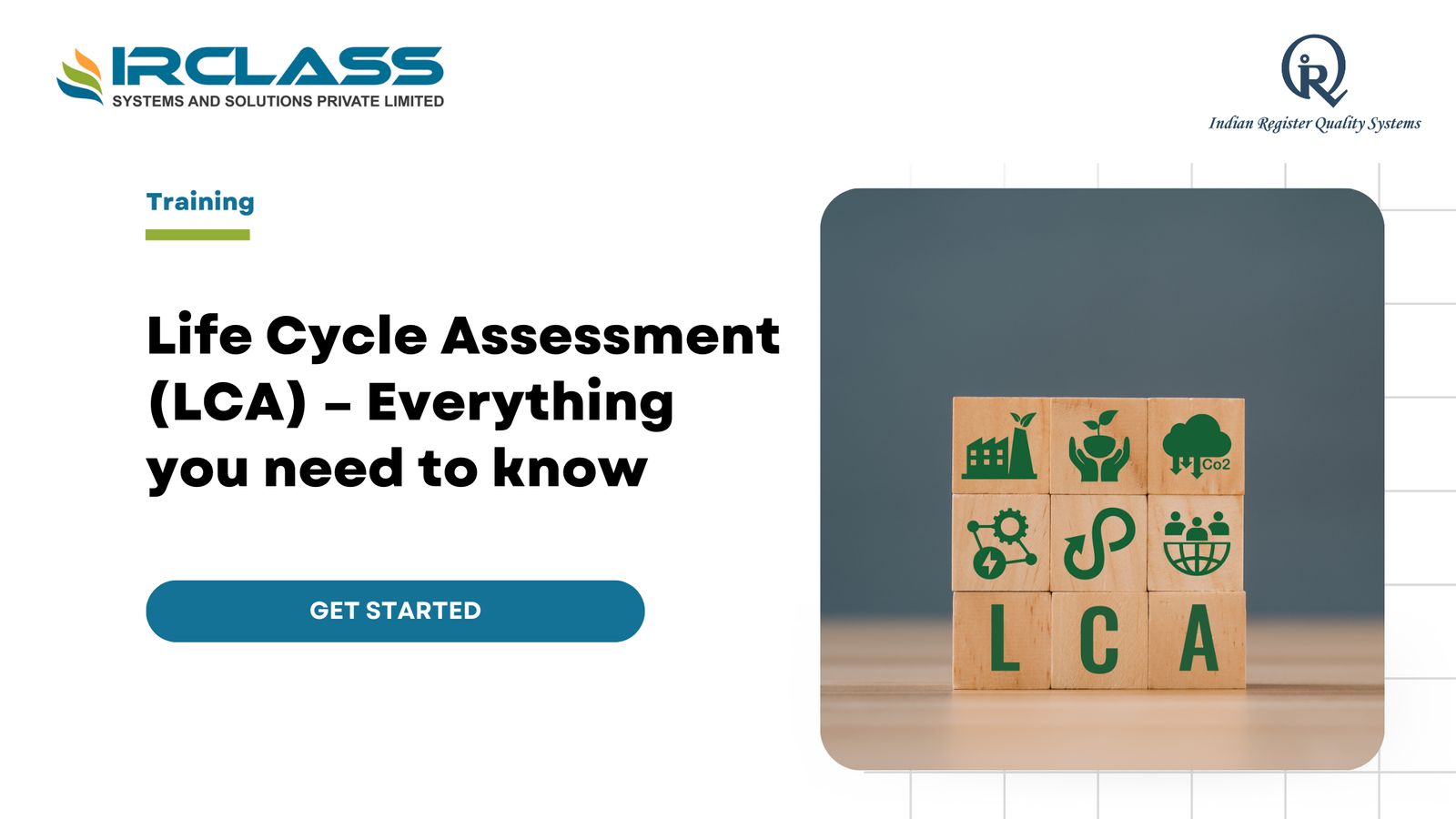Tag: fssc 22000 version 6 checklist

Ensuring Food Safety: FSSC 22000 Version 6 Compliance and Certification in India
The FSSC 22000 certification program is a Food Safety System that supplies a comprehensive framework for the production chain of a food product. The certification framework is an effective solution to manage and promote the food safety responsibilities in an organization. The food safety program is a globally accepted framework, and it is acknowledged by the Global Food Safety Initiative (GFSI). FSSC is based on the existing ISO Standards, and thus, the utility of the framework is unquestionable. FSSC 22000 has gained popularity in a short span. In fact, more and more retailers and manufacturers are pushing their limits to adhere to the norms. The certification has an integral role in preventing the possibility of recalling the products. There are 7600 facilities certified across the world, and FSSC 22000 is among the fastest-growing certification schemes. The FSSC 22000 system employs a management system and defines the ideal approach to food safety. It is an effective choice and uses the ISO 22000 framework for optimal management system requirements and ISO Technical Standard maintenance. The food safety management system combines multiple management systems, such as ISO 9001 and ISO 14001, delivering a comprehensive solution. FSSC 22000 Certification – Understanding it rightly. A standardized system ensuring the nobility and safety of the various links in a food chain is vital to maintaining quality. The FSSC standard has become critical to ensure optimal consumer protection. There are diverse benefits of the certification, making it a prime choice among manufacturers and consumers. The International Organization for Standardization, or ISO, has developed a Food Safety Management System. It is based on the Quality Management System – ISO 9001, a globally accepted standard. The Food Safety Management System is applicable to any company or enterprise in the food industry. It is suitable for farmers, manufacturers, and transporters. Importance of FSSC 22000 Certification FSSC 22000 is an all-inclusive Food Safety Management System. It combines with different ISO-based management systems like – ISO 9001, ISO 14000, etc. Read on and explore the significance of the updated certification program. 1. Managing Risk If you adhere to the norms of the FSSC System, it will give your company a competent management strategy for food safety hazards. It helps an organization by building a comprehensive environment with optimal capacity for producing a safe product. The management system is convenient and fuss-free to manage, monitor, and validate. Also, it streamlines system improvement. 2. Maintain current customers Recent research states that approximately twenty-five percent of certified companies are asking their suppliers to acquire the certification. It is high time you consider the system. Acquiring the certification is essential for the organization. It helps you operate optimally and get better clients alongside the existing customers. 3. Increase your market reach The top retailers and multinational manufacturers look for the certification of their suppliers. If you have an FSSC 22000 Certification, it expands your market reach to the next level. With the certification, you become ready to expand the market reach. 4. Prepare for upcoming regulatory changes Different countries across the world are modifying their food safety system. It is vital to abide by the new food safety regulations and update the existing system. FSSC facilitates the operations of the organization to meet the regulatory requirements. What are the reasons for the revision? According to the revised version of the FSSC standard, one must take care of the following aspects – Compliance deadline FSSC 22000 Version 6 was published on April 1, 2023. It had a one-year deadline for compliance. By March 31, 2024, all certification audits must follow the guidelines of version 5.1. The transition period is from April 1, 2024, to March 31, 2025. During this time, all organizations already certified must be audited in the new version 6. It is better to start early and implement the vital changes. It necessitates critical analysis and risk assessment to determine an effective structure. Updated norms in FSSC version 6 The different updated norms in FSSC version 6 include – Food Safety and Quality Culture, Equipment Management, Communication Requirements, Quality Control, and Food Loss and Waste. The new topics included in the existing set of requirements are – Supplier Management, Product Labelling, Logo Use, Management of Allergens, Food Defense, Food Fraud, Environmental Monitoring, Transportation and Delivery, Product Design and Development, Requirements for multi-site organization, and Hazard Control and steps to prevent cross-contamination. The unchanged aspects of the FSSC version are the verification of PPRs and Health Status. Benefits you must know Several consumers have become concerned about food safety, and awareness has increased to the next level. Unfortunately, the incidents of foodborne health hazards and product recalls in the supply chains have worsened the situation. Manufacturers need to focus and put extra effort into addressing the operational vulnerabilities in the processes. Explore the prime benefits of the food certification to make the best decision – Closing note – Make the best choice Meet the requirements of the latest version of FSSC. Get a golden chance to develop and implement food fraud prevention measures for enhanced operations. Review and recognize the vulnerabilities in your supply chain. Identify the aspects that could lead to food fraud incidents and implement the ideal controls to mitigate the risks. Make it a point to review and update your food fraud prevention strategy and stay ahead of the emerging threats.

Understanding FSSC 22000 Version 6: What’s New and What’s Changed?
FSSC 22000 is a globally recognized certification scheme. FSSC 2200 ensures the safety and quality of food-based products. The newest version of FSSC 22000 comprises the sixth version. It was published in April 2023. One can obtain a 12-month transition period between 1st April 2023 and 31st March 2024. The transition is vital to abide by. Why? Because after 31st March 2024, no audits could be conducted by following the 5.1. version of FSSC 22000 certification. The latest version of the certification exhibits significant changes and all these impact food production companies. Review the prime transition areas and ensure the best solution. Changes in the food chain category FSSC 22000 version 6 has introduced effective changes to food chain categories. The food chain subcategories were based on the ISO22003-1 accreditation program. The categories met the Global Food Safety Initiative (GFSI) requirements. But things have evolved. FSSC version 6 has introduced two categories – The pet food production categories have also been revised and eliminated. Pet food is part of the C and D categories. The latest addition of e-commerce could be seen in the category FI. Introducing detailed clauses – Know them rightly. The additional norms and requirements of FSSC version 6 include the following – Audit times – The change in accreditation The various changes in the accreditation document ISO 22003-1 make a remarkable impact. One can spot additional requirements related to the audit time for FSSC 22000. In fact, the audit time will increase for many organizations. In contrast, enterprises that undergo integrated audits with management systems or food safety systems can experience a reduction in audit time. Follow up on non-major conformities. FSSC 2200 version 6 defines the prime non-conformities, and these need to be enclosed by the certification body (CB) within a span of 28 calendar days. The days get counted from the last day of the audit. A Corrective Action Plan or CAP can also deliver temporary measures and ensure optimal monitoring solutions to mitigate the risks. The temporary changes are critical until permanent corrective action can be implemented. Additional audit documentation and certificates FSSC 22000 version 6 also necessitates the active role of a representative of the company and an experienced auditor to meet the needs. They help complete the attendance register. It is a critical document and contains information related to the start and end time of the audit with the break times. In addition, an integrity declaration is vital to manage by a senior representative of the company throughout the audit. Communication requirements – A new section It is a new section introduced in the 6th version of FSSC. The certification body must be informed within three days of an event that may impact food safety, legality, and the certification integrity. It can include force majeure, natural and human-made disasters like – war, crime, flood, earthquake, strike, terrorism, crime, flood, earthquake, malicious computer hacking, etc. Also, it includes critical situations where the certification integrity is at stake. FSSC is essential to prevent disrepute, recalls, withdrawals, disasters, and food safety outbreaks. The FSSC certification body needs to be informed within a span of three days. It is applicable to regulatory authorities and food safety issues. In many cases, there may be additional monitoring requirements, enforcing production shutdown. The FSSC norms are apt for food safety-related legal proceedings, trials, malpractices, and fraudulent activities. Equipment management – A new chapter Equipment specification and management are integral aspects. Companies need to follow FSSC compliance and regulatory norms for addressing hygienic design. The compliance norms help you navigate the hassles of legal and customer requirements. Ensure the best utility and functionality for equipment and ease the management steps conveniently. The supplier must offer accurate details and specifications before proceeding with the equipment installation. It helps avoid the risks, ensuring optimal quality. With the evolved management techniques, enjoy the benefits of adequate equipment control measures for production. Enhanced and updated norms for quality control Quality control exhibits a systematic procedure. It includes various aspects like the establishment, implementation, and maintenance of quality norms. The QMS also focuses on the finished product specifications and product release steps. Additionally, one can obtain an analytical overview of the quality control parameters that shall be carried out and used as input for the management review. The quality control procedure is included in internal audits, enhancing the overall attributes of the products. Quantity control techniques are dynamic and can vary based on legal and customer requirements. These are also included in the new chapter. Besides these, the establishing and implementing line start-up and change-over procedures have been added to the new chapter. It focuses on the dynamic controlling measures related to product labelling and packaging. Ensure better food safety and quality. Before the new changes in the certification framework, the focus was exclusively on food safety culture. It had to be implemented aptly and was part of FSSC 22000. The new version delivers a comprehensive solution by adding a new chapter with additional requirements. It covers everything essential for quality culture. It exhibits the commitment of an organization and helps cultivate optimal food safety and quality. The diverse aspects to consider in food safety and quality culture include – Ensure a well-documented food safety and quality culture plan with better-defined targets and deadlines for continuous improvement and optimal management. Summing up The main changes in the FSSC 22000 version 6 include – Ensure an efficient transition by realizing the new changes and critical aspects of the latest version of FSSC 22000. Image by Freepik
Search
Useful Links
Recent Posts

What is a Life Cycle Assessment Course and Why Should You Take It?

Step-by-Step Guide to Becoming an ISO 27001 Implementer



